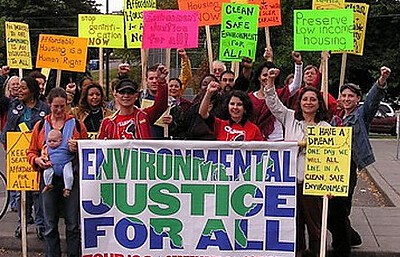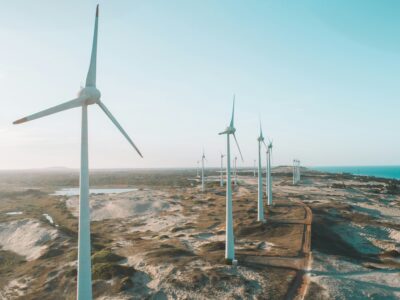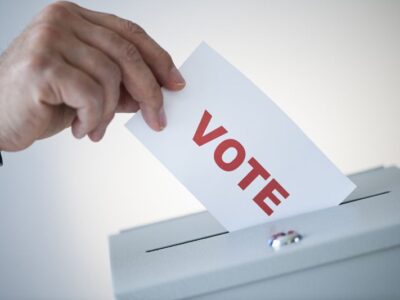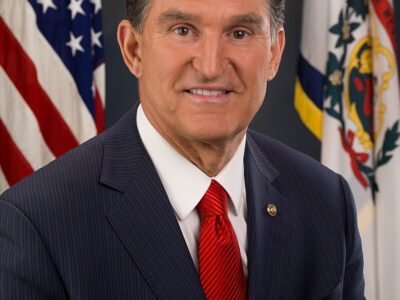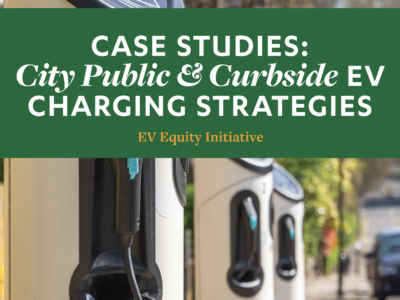environmental justice
The Annihilation of Environmental Justice: A Timeline
Trump has spared no effort to ensure that the government ignores the needs of vulnerable communities.
Amid the daily onslaught of executive actions, the cumulative effect of these actions may escape notice. A case in point is environmental justice. It’s not just one or two dramatic actions: there has been a systematic war of elimination against protections for vulnerable communities. While initiated by Trump, the effort has included a ream of destructive follow-on actions. The best way to make the point is a chronological account.
CONTINUE READINGCould CA Local Agencies Replicate Past Federal Solicitation Approaches?
Innovative solicitation & contracting approaches may make offshore wind infrastructure projects work better for communities
Offshore wind is a nascent industry in California, and actions by the new federal administration are threatening to slow or halt the significant progress made in recent years. Despite these new federal policies, however, state and local leaders are planning infrastructure needed to launch the sector in California, including port facilities suitable for assembling and …
Continue reading “Could CA Local Agencies Replicate Past Federal Solicitation Approaches?”
CONTINUE READINGCommunity Benefits from Climate Infrastructure Investments
Tracking Investments Under BIL and IRA
Community Benefits tools, including Community Benefits Plans (CBPs), Community Benefits Agreements (CBAs), Host Community Agreements, and other variations are tools that can accompany infrastructure investments and bring benefits to communities that host those projects. There are different drivers that result in the use of community benefits tools and the tools employed (i.e., agreements, plans, etc) …
Continue reading “Community Benefits from Climate Infrastructure Investments”
CONTINUE READINGTracking the Trump Administration
Rollbacks of Climate, Energy, and Environmental Policies and Investments
The first month of the Trump Administration has resulted in a dizzying flurry of actions and reactions. Many of us are wondering how to track the status of these actions, including the legal challenges to these actions. Luckily, a number of institutions are keeping track of the range of policy and legal actions that are …
Continue reading “Tracking the Trump Administration”
CONTINUE READINGTrump’s Seven Most Anti-Environmental Moves — and How to Push Back
There were dozens of actions, all harmful to the environment. These are the worst of the worst.
In the month since he reentered the White House, Trump has dedicated himself to knee-capping environmental protection through a series of executive orders. These orders aim to eliminate crucial environmental regulations, eviscerate key agencies like EPA, arbitrarily halt government funding, and eliminate environmental restraints on the private sector. But these are not done deals, and there are ways of pushing back.
CONTINUE READINGTrump Goes to War Against Environmental Justice
Apparently it’s “woke” to worry about excessive pollution in minority communities.
There is little or no basis for Trump’s claim that Clinton environmental justice order violated either civil rights laws or the Constitution. Trump’s embrace of this extremist view is an indication of just how much more radical his second term may be compared with his first. The law does not require the government to close its eyes to the harm its own policies may be causing to minority communities.
CONTINUE READINGClimate Politics and Electoral Realignment
Some deep-seated dividing lines in U.S. politics seem to be eroding, with potential implications for climate policy.
The electorate is changing. Racial divisions are blurring, the GOP has gained a solid following among working class voters (especially whites), and college graduates and those with above median incomes have shifted to the Democrats. Among the many effects will be changes in the politics surrounding climate change. We will start to see an increased rate of success for advocates of climate actions in off-year and down-ballot races.
CONTINUE READINGA Framework for Equitable Climate Infrastructure Investments
Reframing Infrastructure Investments to Realize an Equitable Transition
Achieving climate goals requires significant investments in clean energy, transportation, and other climate technologies to reduce greenhouse gas emissions and remove carbon from the atmosphere. The Bipartisan Infrastructure Law and Inflation Reduction Act have resulted in historic levels of public investment to transform existing energy and transportation systems and lay the foundation for emerging climate …
Continue reading “A Framework for Equitable Climate Infrastructure Investments”
CONTINUE READINGJustin Pidot: Manchin’s Latest and Last Run at Promoting Fossil Fuels through a Permitting Reform Bill
His proposal is a bad deal on climate and an afront to environmental justice
Last week, Senator Manchin unveiled his latest permitting bill, negotiated with Senator Barrasso and set to be marked up by the Senate Committee on Energy and Natural Resources on Wednesday. After recently completing a 3 ½ year stint as general counsel at the White House Counsel of Environmental Quality, I recognize that continuing to improve …
CONTINUE READINGHow Can Cities Deliver Equitable EV Charging to the Curbside and Public Right of Way?
New CLEE Report Presents Case Studies and Elevates Key Strategies
As California and other states transition to one hundred percent zero-emission new vehicle (ZEV) sales by 2035, local governments will play a crucial role in addressing inequities in the ZEV transition. Limited access to abundant and reliable charging equipment remains a key barrier to ZEV adoption for all, and city governments can lead efforts to …
CONTINUE READING



